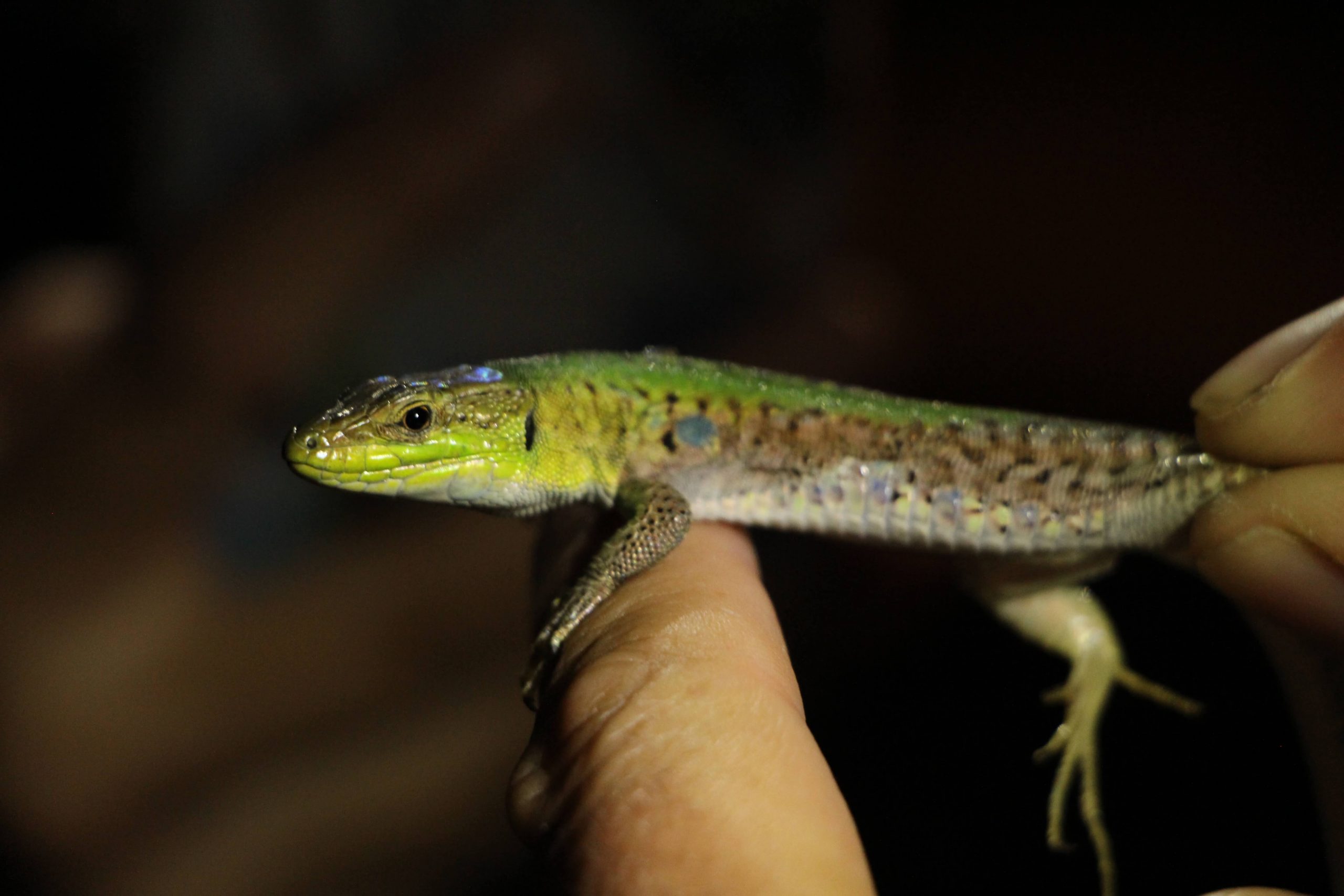
GENERAL INFORMATION
Project Name: Dopamine regulation of competitive behavior in coexisting populations of lizards Podarcis siculus and Podarcis melisellensis
Funding: Croatian Science Fundation (HRZZ)
Project duration: 01.01.2020 – 31.12.2024
Project leader: Sofia Ana Blažević
Project number: UIP-2019-04-8469
Funding (HRZZ): 1.975.000,00 Kn
Behaviors of aggressive and social character shape population dynamics, reproductive output, and energy balance within populations. These behavioral paradigms are the result of the activity of brain monoamine neurotransmitters – serotonin, dopamine (DA), and noradrenaline. These neurotransmitters are vastly understudied in wild animals and, often, their causative roles in behavior are not directly evident due to behavioral and physiological variability within populations.
Lizards, amniotic vertebrates, have simpler brains than mammals yet share with them common neural circuits in the brainstem that are responsible for motivational behavior including aggression. This simpler brain is favorable for studying underlying mechanisms of behavioral control, and the results could be translated to other species.
It is well known that in the Eastern Adriatic, Podarcis siculus, a globally invasive species, competitively excludes the native Podarcis melisellensis. We have recently demonstrated that P. siculus has twice as much dopamine in the brain as P. melisellensis.
The project BOLDer aims to study this unique model of coexisting lizards’ species to understand the relationship between differences in brain neurotransmitter content and ecological exclusion of these species.
Specifically, we plan to:
1) demonstrate the interspecific differences in brain DA levels between these two species across different sympatric populations (HPLC);
2) link these differences with specific components of aggressive behavior (in situ and lab. behavioral testing)
3) examine structural (histology/immunohistochemistry) and transcriptional (transcriptome NGS and qRT-PCR) mechanisms that determine these differences.
BOLDer will formally establish the first neuroethological research group at the Faculty of Science, that will, with its comparative approach, try to clarify the axis that links aggressive behavior with the regulation of neurotransmitter levels/activity.